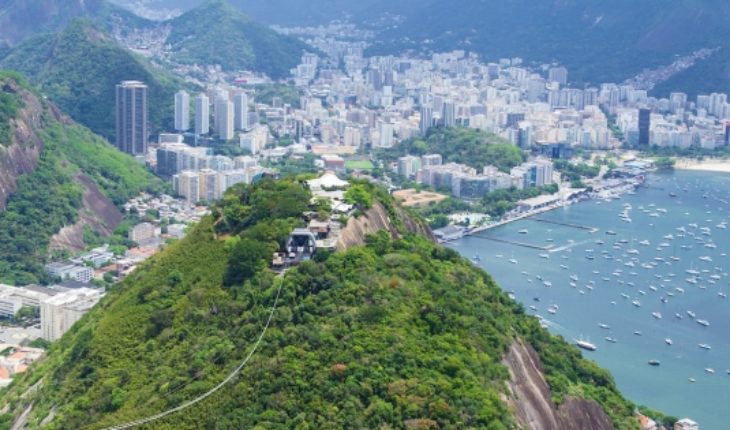Closing a year deserves a big celebration. After much work and sacrifice, the last weeks of December are filled with meetings and parties where meals and toasts abound.
But it is also a time when people who dare to the unexpected, decide to spend the new year’s eve festivities in a different way, away from their homes and with different customs.
That’s why Assist Card made a compilation of five destinations where the end of the year is celebrated with exotic rituals that will be etched in the memory of travelers forever.
Rio de Janeiro, Brazil
In the populous city of Carioca, one of the favorite destinations to receive the New Year, it is characterized by its famous beach parties, such as the Réveillon in Copacabana. There, the tradition consists of dressing in white – symbol of peace and harmony – to attract good luck. Others choose to wear that color in their outfits for religious reasons, such as followers of Lemanjá’s Afro-Brazilian religion, who practice their rituals on the water’s edge.
There is also a ceremony that involves throwing flowers into the sea and jumping seven consecutive waves, a product of African influence and the original slaves who came to carioca soil. In addition, given the Portuguese influence on Brazil, many customs are reflected with Spanish traditions, such as eating lentils or grapes to receive the new year as a harbinger of prosperity.
Nassau, The Bahamas
In the capital of the island is held the Junkanoo Festival, a national festival that began in the sixteenth and seventeenth century when slaves were given a special Christmas permit and could leave the plantations to visit their families. People descend early in the morning of the day after Christmas and New Year down Bay Street using colorful masks and costumes as they dance vigorously to the rhythm of drums, bells and whistles. The celebration begins from the early hours of the morning (around one o’clock in the morning) and ends at ten in the morning.
Tokyo, Japan
In the Asian country, Christmas Day is not festive but the New Year’s Eve and New Year’s period is one of the most important in the Japanese calendar. In Tokyo, on the night of December 31, thousands of people flock to the nearest temple to hear the 108 Buddhist bells, a celebration called “jewel no kane”.
Another typical Japanese ritual is “great cleansing” or “great cleansing”. During the weeks leading up to the end of the year, the Japanese put good effort sdedicated to thorough cleaning in homes, offices, temples, and even schools to remove the old and make room for success and prosperity in the coming year.
In addition, “great cleansing” has a spiritual component: cleaning the house is as if the soul and life of its inhabitants are also cleaned. Thus we can begin the new year from scratch, purified, physically and spiritually clean.
Douz, Tunisia
Tunisia is a destination that boasts stunning landscapes and stands out for its peculiar culture. One of the best places to celebrate New Year’s Eve is Douz, a village in the Sahara Desert. At the end of December, the “International Sahara Festival” is organized, an event that allows you to get to know the culture of the African country in depth.
Recognized as one of the most important festivals for the desert community, it brings together Bedouins, nomadic tribes and thousands of curious people from all over the world with a display of all their traditions and culture. There are impressive shows such as camel racing, Mehari racing (Bedouin soldiers) or the artistic gallop of Arab horses.
Northern Chile
Each year, the northern regions of Chile decide to celebrate the arrival of the new year with a ritual to say goodbye to the 365 days that have just passed. This consists of burning rag dolls and recycled material to eliminate all the old and bad of last year and start a new cycle.
These dolls are a representation of the bad and the old and must be burned at midnight on the point, so as to start the new year completely renovated and without any load that could have left the old year.





